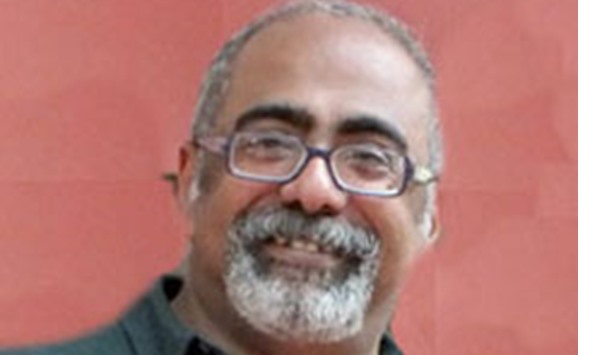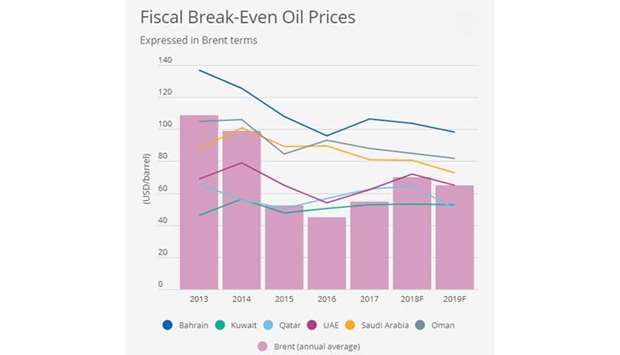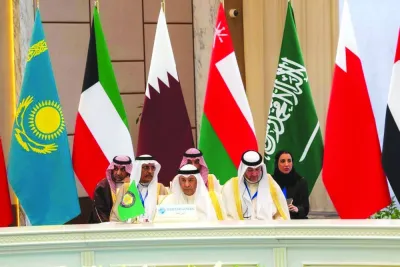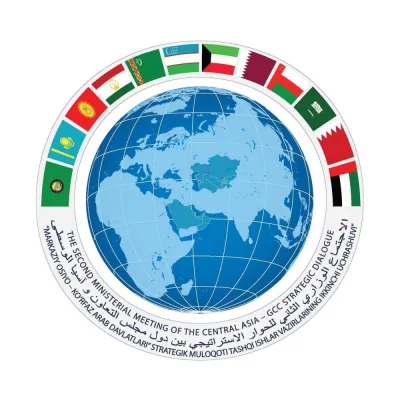Fitch, an international credit rating agency, expects more privatisation plans in the Gulf Co-operation Council (GCC) in 2019, starting with the utilities sector, without compromising the links with the sovereigns.
The rating agency also said in a report the GCC corporates – particularly industrials, property and real estate, natural resources and utilities – have "stable" outlook, reflecting stronger fundamentals, high oil prices and favourable macroeconomics.
"While the majority of the GCC corporates are on a stable outlook, increasing macro-economic challenges and new government reforms will put pressure on cash flows at a time when we expect increasing debt capital market activity in 2019," said Samer Haydar, associate director, EMEA Corporates.
The rating agency also expects total adjusted debt/operating EBITDA (earnings before interest taxes depreciation and amortisation), loan/value (LTV) ratio and funds from operations (FFO) net leverage to be fairly "stable" for industrials and property real-estate firm in 2019.
The LTV expectations are on the cusp of 50%, supported by long-term funding (more than 18 months) and net interest coverage above three times for investment-grade issuers, it said.
"We forecast telecom issuers to maintain leverage-light balance sheets and flat leverage in 2019 for utilities," Fitch said.
The rating agency view neutral cash-flow generation for the GCC telecoms supported by good cash buffers in currencies pegged to the dollar in their domestic markets. However, Fitch forecasts the majority of property real estate and utilities’ players to remain free cash flow (FCF) negative, mainly due to high dividend and capex outflows.
Expecting the market liquidity to remain strong in the strong GCC economies such as the UAE, Qatar and Saudi Arabia and is yet to become more selective on the back of rising interest rates; it said the capital structure for investment grade GCC-based corporates is well diversified and that deepening domestic capital markets are coming into focus.
Finding that most of the rated entities in the region are utilising sukuk as means of refinancing their respective current facilities, improving liquidity, expanding funds and diversifying funding options; Fitch said "we expect the popularity of sukuk to continue increasing and to tap the wider regional and local investor pool that includes Islamic investors.
On the hydrocarbons; it expects exploration and development investments to remain "stable" in the region – Middle Eastern producers have not "significantly" curtailed investments even when oil prices collapsed in 2015-16.
The production in some countries may fall year-on-year following the OPEC decisions. However, this should not have a significant impact on earnings, it said.
The rating agency also said in a report the GCC corporates – particularly industrials, property and real estate, natural resources and utilities – have "stable" outlook, reflecting stronger fundamentals, high oil prices and favourable macroeconomics.
"While the majority of the GCC corporates are on a stable outlook, increasing macro-economic challenges and new government reforms will put pressure on cash flows at a time when we expect increasing debt capital market activity in 2019," said Samer Haydar, associate director, EMEA Corporates.
The rating agency also expects total adjusted debt/operating EBITDA (earnings before interest taxes depreciation and amortisation), loan/value (LTV) ratio and funds from operations (FFO) net leverage to be fairly "stable" for industrials and property real-estate firm in 2019.
The LTV expectations are on the cusp of 50%, supported by long-term funding (more than 18 months) and net interest coverage above three times for investment-grade issuers, it said.
"We forecast telecom issuers to maintain leverage-light balance sheets and flat leverage in 2019 for utilities," Fitch said.
The rating agency view neutral cash-flow generation for the GCC telecoms supported by good cash buffers in currencies pegged to the dollar in their domestic markets. However, Fitch forecasts the majority of property real estate and utilities’ players to remain free cash flow (FCF) negative, mainly due to high dividend and capex outflows.
Expecting the market liquidity to remain strong in the strong GCC economies such as the UAE, Qatar and Saudi Arabia and is yet to become more selective on the back of rising interest rates; it said the capital structure for investment grade GCC-based corporates is well diversified and that deepening domestic capital markets are coming into focus.
Finding that most of the rated entities in the region are utilising sukuk as means of refinancing their respective current facilities, improving liquidity, expanding funds and diversifying funding options; Fitch said "we expect the popularity of sukuk to continue increasing and to tap the wider regional and local investor pool that includes Islamic investors.
On the hydrocarbons; it expects exploration and development investments to remain "stable" in the region – Middle Eastern producers have not "significantly" curtailed investments even when oil prices collapsed in 2015-16.
The production in some countries may fall year-on-year following the OPEC decisions. However, this should not have a significant impact on earnings, it said.




